India and the World chapter 13: Will India and Pakistan ever go hand in hand?
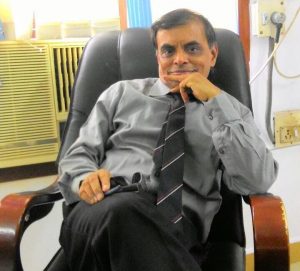
Baskaran Krishnamurthy
Read Chapter 1 , Chapter 2 , Chapter 3 , Chapter 4, Chapter 5, Chapter 6, Chapter 7, Chapter 8, Chapter 9, Chapter 10, Chapter 11, Chapter 12 if you are yet read them.
Are we right in blaming Pakistan for all the problems between us? In a way, yes; we are.
Pakistan keeps spreading venom and anger against India among its people; meticulously carrying falsehood and negativity to their students and youth; never allowing them to have a fair and factual appraisal of India on their own. While there could have been certain issues that Pakistan would like to raise and settle to its liking, it has chosen to follow the path of eternal enmity for which there was no justification at all.
The war of 1971 was not of India’s making yet it was made out to be one by Pakistan in its application to the International Court of Justice. It had repeatedly mentioned the Geneva Convention in its representation. What does the Convention really say?
‘The Geneva Conventions and their Additional Protocols form the core of international humanitarian Law, which regulates the conduct of armed conflict and seeks to limit its effects. They protect people are not taking part in hostilities and those who are no longer doing so’. (International Committee of the Red Cross) It says – ‘even wars have rules’.
Pakistan admitted that it was an ‘internal situation’ and that the alleged crimes took place within its own territory and sought the release of prisoners of war under Geneva Convention. But was it tenable?
Article 3 of the Convention reads – ‘persons taking no active part in hostilities shall in all circumstances be treated humanely, without any adverse distinction founded on race, colour, religion or faith, sex, birth or wealth or any other similar criteria.’
The Dhaka massacre was a hostility based on birth – those who were of Bangladeshi origin were singled out and killed. The list of victims contains many learned Professors and students and even the employees and servants of the University. They had never taken active part in the hostilities. Was it not in violation of the Geneva Convention? The crimes were clearly outside the ambit of the Conventions. Yet, it was referred to by Pakistan to shield the criminals and free them from being legally proceeded against and punished.
Article 49 of the Convention entitles the ‘high contracting party’ to enact any legislation necessary to provide effective penal sanctions for persons committing or ordering to be committed, grave breaches of the Convention; shall bring such persons, regardless of their nationality, before its own courts.
What are the ‘grave breaches’? Article 50 says – ‘willful killing, torture or inhuman treatment, including biological experiments, willfully causing great suffering or serious injury to body or health, and extensive destruction and appropriation of property, not justified by military necessity and carried out unlawfully and wantonly’.
The Dhaka University massacre did fit into the category under Article 50. India in its reply to the ICJ reiterated that the prisoners of war numbering 195 detained for trial merited no clemency and that war criminals had no right to claim immunity under the Convention. India was absolutely right.
Pakistan refused to see reason because the operation was carried out by the orders of its army, by its own troops and under its direct control and supervision. India did not make any personal appearance before the Court. In the meantime, Pakistan continued its negotiations with India and Bangladesh. As was submitted by Pakistan later, an agreement had been reached too by all the three nations involved in the conflict.
‘The question of 195 Pakistani prisoners of war was discussed by the three Ministers, in the context of the earnest desire of the Governments for reconciliation, peace and friendship in the sub-continent. The Foreign Minister of Bangladesh stated that the excesses and manifold crimes committed by these prisoners of war constituted, according to the relevant provisions of the U.N. General Assembly Resolutions and International Law, war crimes, crimes against humanity and genocide, and that there was universal consensus that persons charged with such crimes as the 195 Pakistani prisoners of war should be held to account and subjected to the due process of law’.
To this accusation, as a reply, the Minister of State from Pakistan said that his Government ‘condemned and deeply regretted any crimes that may have been committed’. It was the most non-committal apology and was more of a denial and rebuttal than admitting the crime or the charges leveled against it.
Bangladesh did not want to stretch the issue any further. The Prime Minster of Bangladesh wanted his people to forget the past and to make a fresh start, stating that the people of Bangladesh knew how to forgive’. He wanted to usher in to a period of reconciliation and cordial relations with others. It was a perfect gentlemanly attitude and as the Head of a new born Nation, he had so many more urgent and more important assignments to attend to.
And hence, as an act of clemency, the Government of Bangladesh decided not to proceed with the trial. It was agreed that the 195 prisoners of war may be repatriated to Pakistan along with the other prisoners of war who were to be repatriated under the Delhi Agreement’.
Thus, the contemptuous issue was a given a decent burial by the considerate Prime Minister of Bangladesh. He had a point too. He did not want his nation to be bogged down and dragged into long drawn out legal battle.
Mujibur Rahman genuinely wanted to forget the ill will and hatred and wanted to turn all his attention to building his nation. This was the deciding factor in the whole issue of repatriation of 195 prisoners of war that brought cheers to Pakistan but not the much needed transformation in it.
Had the Pakistani leaders adopted a similar, matured approach towards their own East Pakistan, it would have been a totally different story altogether. All the hostile attacks and counter attacks could have been avoided. This is the moral of the story with nobody to accept it.
But there did, after nearly 3 decades, emerge a leader in India who wanted to achieve a state of mutual trust and harmony; to strike a cordial note that would once for all dispel the feel of suspicion and betrayal on either side.
That indeed was a moment of promise and hope. It was to be the beginning of a new chapter in the relations between India and Pakistan.
The poet cum politician, the Prime Minister of India, Atal Bihari Vajpayee displayed an exemplary sense of responsibility and farsightedness. He went with his hands wide open to embrace the Pakistan Prime Minister Nawaz Sheriff and conveyed to him the readiness of India to forget the bitter encounters of the past and assured him of brotherly relations between India and Pakistan. Together they struck the Lahore Declaration.
19 February 1999 was a day that aroused a lot of expectations among the peoples of both India and Pakistani. Atal Bihari Vajpayee launched the direct bus service between Delhi and Lahore and he himself travelled too. He was warmly received by the Prime Minister of Pakistan Nawaz Sheriff. It felt like there was no hatred or enmity or ill will anymore.
On the demise of Vajpayee, Indian Express carried an article of tribute and reported that on receiving him in Lahore after the Bus journey, Sheriff said – ‘Vajpayee can now win an election even in Pakistan.’ He meant that the people in Pakistan welcomed the initiative and acknowledged it with all the relief and gratitude that it truly deserved.
Two days later, Lahore declaration, a bilateral Treaty was signed by both the leaders. It recognized that ‘the nuclear dimension of the security environment of the two countries adds to their responsibility for avoidance of conflict between the two countries; reiterated the determination of both countries to implementing the Simla Agreement in letter and spirit; committed to the objective of universal nuclear disarmament and non-proliferation; and convinced of the importance of mutually agreed confidence building measures for improving the security environment and felt that an environment of peace and security is in the supreme national interest of both sides and that the resolution of all outstanding issues, including Jammu and Kashmir, is essential for this purpose’. ( thank – Ministry of External Affairs , Government of India)
What happened a few weeks later was a clear case of betrayal by Pakistan that resulted in Kargil War. Once again, an opportunity to mend its ways and to be in normal relationship with the neighbour was lost and all the good efforts of Vajpayee were thwarted by ambitious army of Pakistan.
Since 1947, there have been numerous instances of trespass, intrusion, militant operations and armed attacks on the border areas by Pakistan sponsored miscreants or by Pakistan army itself. Unprovoked shooting, unwarranted attacks and unceremonious interventions by Pakistan make the relations anything but friendly and cordial.
How long shall we carry this legacy of distrust and disgrace? Both sides need to show the statesmanship that Morarji and Vajpayee displayed. The peoples of both India and Pakistan deserve to live in peace and harmony that would help turn the lives of millions prosperous, free from ignorance and utter poverty.
What are the possible areas where the two countries can have a far smoother arrangement? What are the fields that can provide a much better understanding? Who are the people who can ensure an accommodative relationship? Are there any as such?
Author – Baskaran Krishnamurthy, Writer, Columnist & Income Tax officer

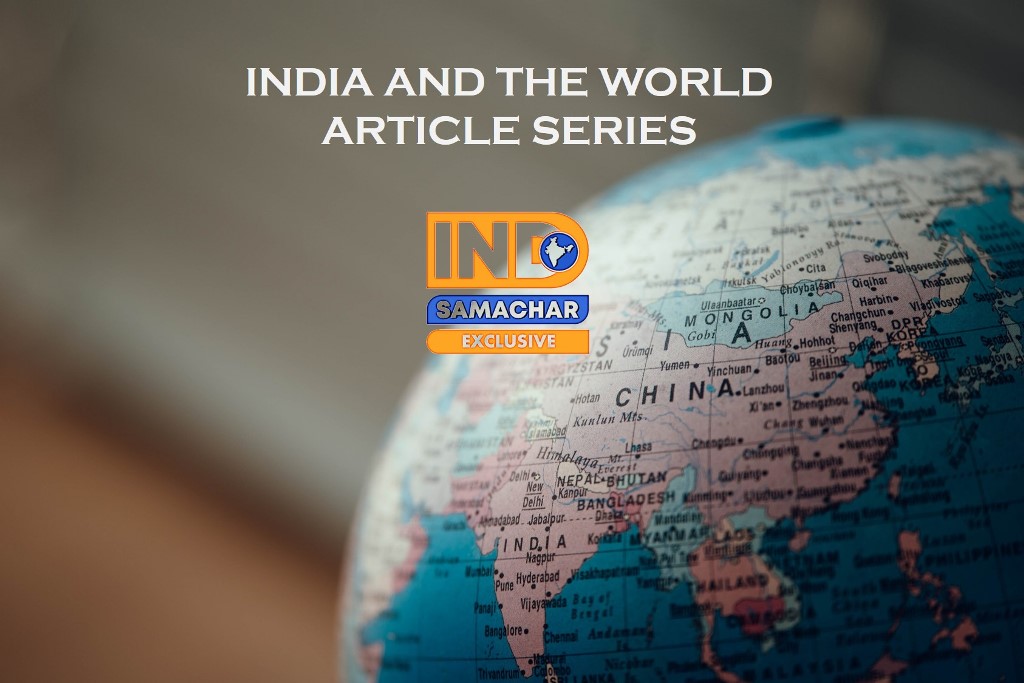








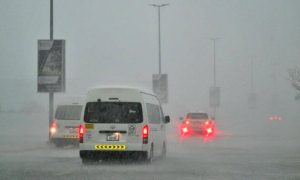







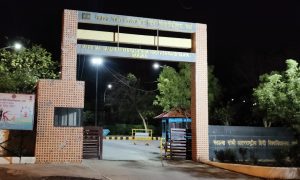







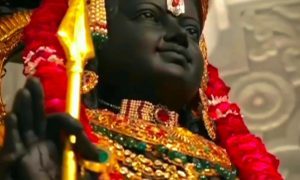

 WhatsApp us
WhatsApp us
Pingback: https://www.pinterest.com/ketquaxosotv/
Pingback: พิโก
Pingback: fake rolex
Pingback: Vital Flow Review
Pingback: http://63.250.38.81/
Pingback: w88
Pingback: immediate edge review
Pingback: find this
Pingback: Devops
Pingback: Quality Engineering
Pingback: HP M1120n manuals
Pingback: try this
Pingback: https://munib.org/
Pingback: หลังคาชิงเกิ้ลรูฟ
Pingback: cheap dumps cvv
Pingback: wow slot
Pingback: Phygital Retailing
Pingback: Vanessa Getty net worth
Pingback: Voyeur Hotel Camera Cachée Sex En France En 2003
Pingback: Chillwell Portable AC review
Pingback: ammo shop online
Pingback: wholesale liquor for sale online
Pingback: 이천자연눈썹
Pingback: สินเชื่อส่วนบุคคลอนุมัติง่ายที่สุด
Pingback: where to purchase marijuana gummies
Pingback: เงินด่วน 30 นาที ถูกกฎหมาย
Pingback: Buy weed Alabama
Pingback: Plus d'information
Pingback: 홀덤사이트
Pingback: golden teacher mushroom spawn,
Pingback: Cheap DMT for sale Australia
Pingback: buy remington guns
Pingback: mushroom chocolate bars Oregon